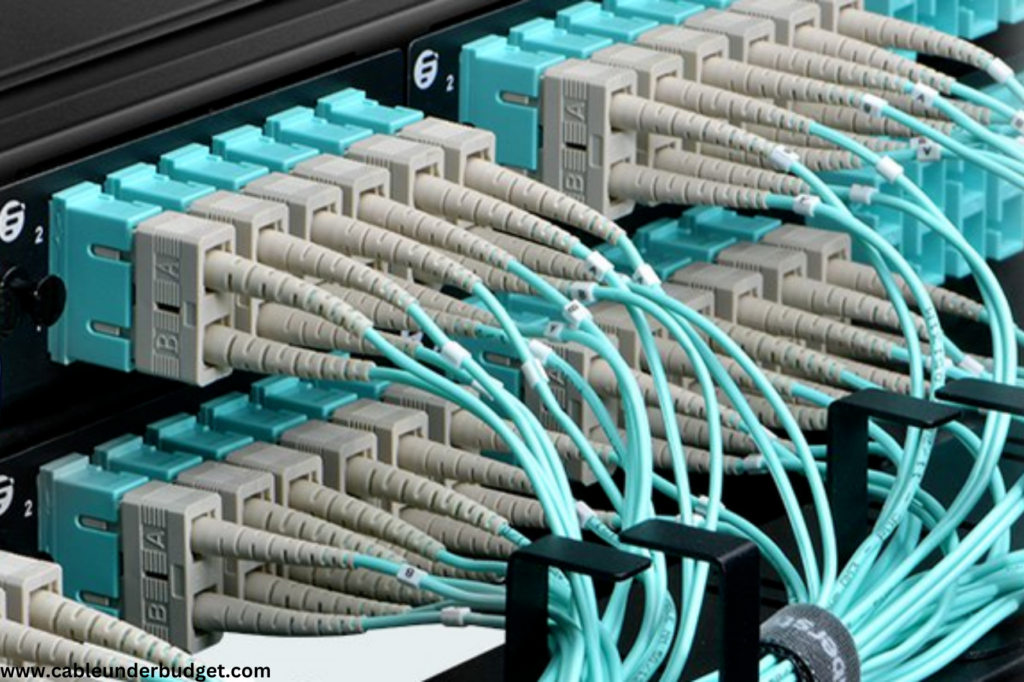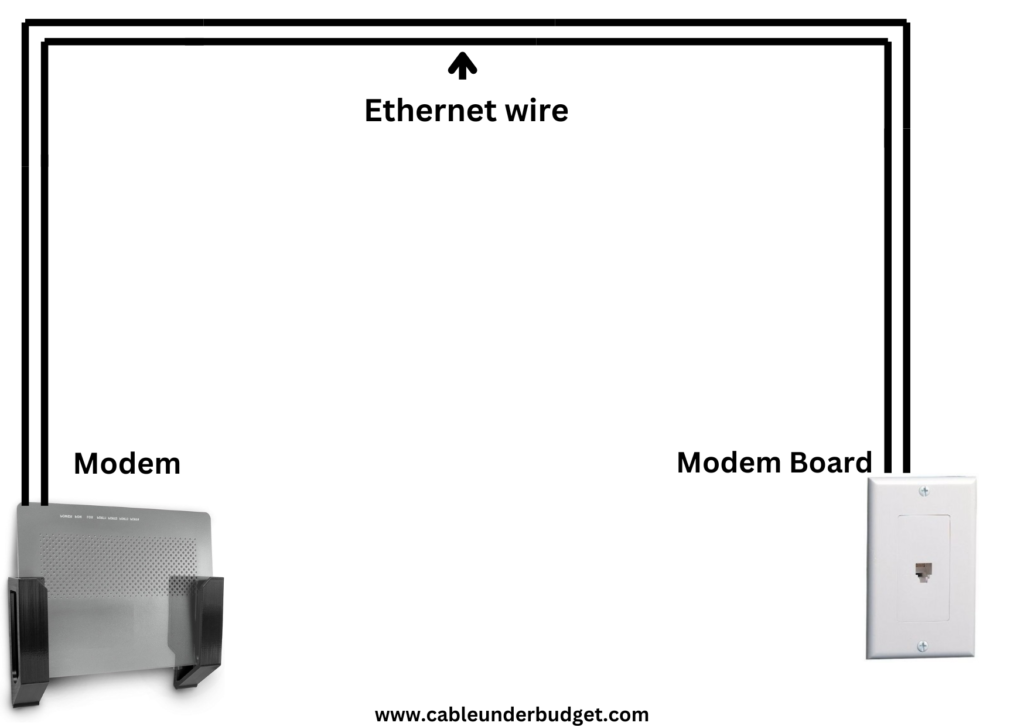Contents
EV Charging Connector Types
Electric vehicle (EV) charging connectors play a crucial role in powering your electric vehicle efficiently. Understanding the types of connectors available, whether for alternating current (AC) or direct current (DC) charging, is essential for seamless charging experiences.
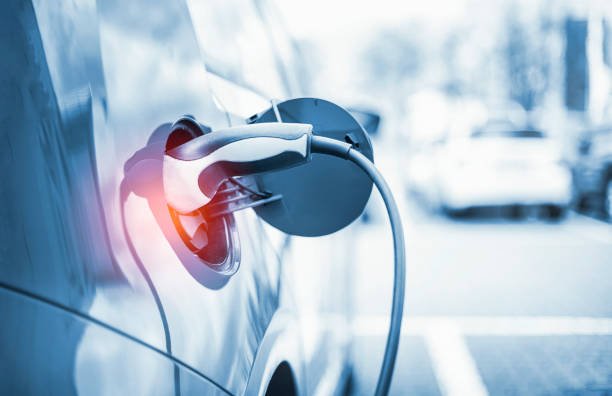
Types of AC Plugs for EV Charging
AC charging is primarily used for slower charging at home or public charging stations. The two main types of AC plugs are:
-
- Type 1 (SAE J1772)
-
- Type 2 (IEC 62196)
Type 1 (SAE J1772):
Type 1, also known as SAE J1772, is a standard charging connector predominantly used in North America and some parts of Asia. It consists of a single-phase connector with three pins: two for AC power (positive and negative) and one for a proximity pilot signal. This connector is commonly found in home charging stations and public charging points in regions where it is widely adopted.
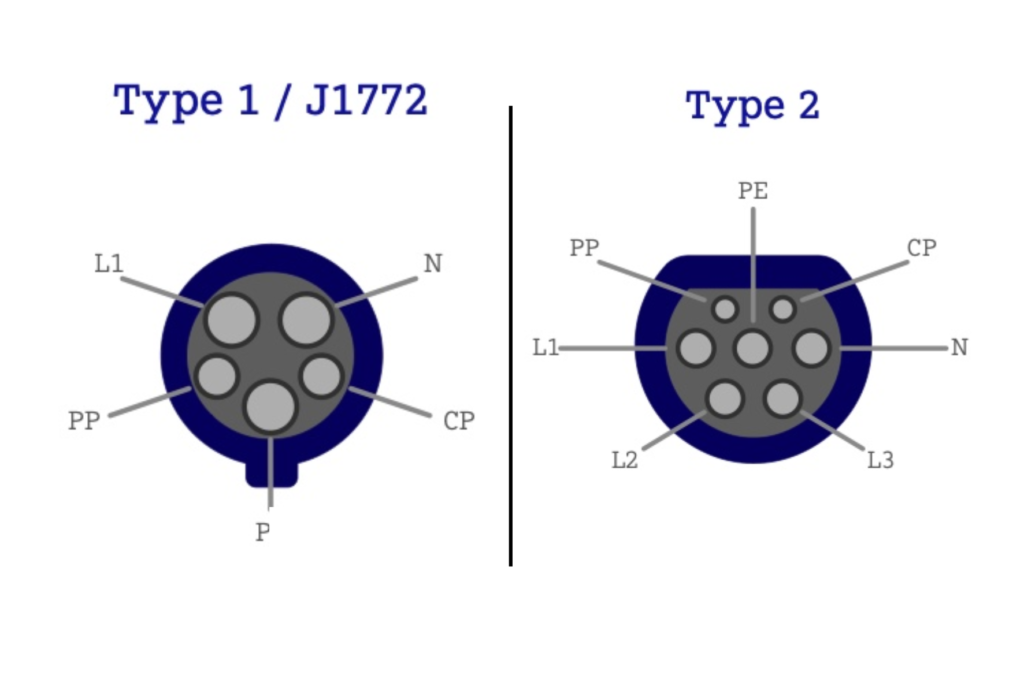
Type 2 (IEC 62196):
Type 2, also referred to as IEC 62196, is a European standard charging connector that has gained popularity globally. It features a more versatile design compared to Type 1, with additional pins for three-phase AC charging, allowing for faster charging rates. Type 2 connectors are commonly used in public charging stations across Europe and are increasingly adopted in other regions due to their compatibility with a wide range of electric vehicles.
Types of DC Plugs for EV Charging
DC charging offers faster charging options, commonly found at fast charging stations along highways or in urban areas. The two primary types of DC plugs are:
-
- CHAdeMO
-
- CCS (Combined Charging System)
CHAdeMO:
CHAdeMO is a DC fast charging standard developed by a consortium of Japanese companies. It features a unique connector design with a large, rectangular plug. CHAdeMO connectors support high-power charging, making them suitable for rapid charging of electric vehicles. This standard is commonly used in Asian countries and is also found in some parts of Europe and North America.
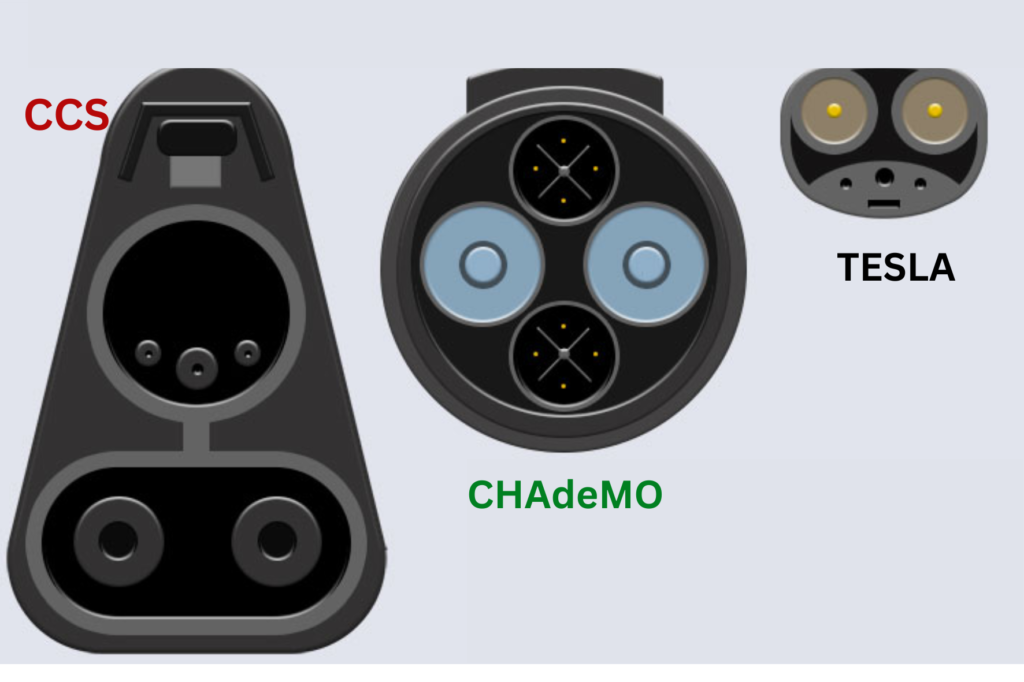
CCS (Combined Charging System):
CCS, or Combined Charging System, is a DC fast charging standard that integrates both AC and DC charging into a single connector. It features a two-part plug design, with additional pins for DC charging capabilities. CCS connectors are widely adopted in Europe and North America and are increasingly becoming the standard for fast charging infrastructure globally. They offer compatibility with both Type 1 and Type 2 AC connectors, providing flexibility for electric vehicle owners.
Tesla Connectors:
The Tesla connector, often referred to as the Tesla Supercharger connector, is a proprietary charging connector developed by Tesla for their electric vehicles. Unlike other standard connectors like CHAdeMO or CCS, the Tesla connector is unique to Tesla vehicles and Tesla’s charging infrastructure. The Tesla connector features a sleek, streamlined design with a small, round plug. It is specifically designed to be compatible with Tesla’s high-speed Supercharger network, which provides rapid charging capabilities for Tesla vehicles. Tesla Supercharger stations are strategically located along highways and in urban areas to enable long-distance travel and convenient charging for Tesla owners. These stations offer DC fast charging, allowing Tesla vehicles to replenish their battery quickly and efficiently.
Compatibility Considerations
When selecting a charging connector for your EV, it’s crucial to consider compatibility with your vehicle’s charging port. Factors to consider include:
-
- Vehicle make and model
-
- Charging standards supported
-
- Connector types compatible with your EV’s charging port
Choosing the Right Connector for Your EV
To ensure seamless charging experiences, follow these steps:
-
- Identify your vehicle’s charging port type and compatibility with AC and DC plugs.
-
- Determine the charging standards supported by your EV.
-
- Research available charging stations in your area to understand the connector types they offer.
-
- Consider investing in adapters or additional cables if your EV’s charging port is not compatible with commonly available connectors.
-
- Prioritize safety and reliability when selecting charging connectors for your EV.
Conclusion: Navigating the World of EV Charging Connectors
Understanding the nuances of EV charging connectors empowers EV owners to make informed decisions regarding charging infrastructure. By considering compatibility, charging standards, and available options, EV drivers can optimize their charging experiences and contribute to the widespread adoption of electric vehicles.
